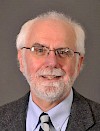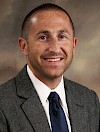AASP Newsletter - January 2019
A Happy Ethical New Year for AASP Members
 |
 |
 |
|
|
|
|
Ed Etzel, EdD, CMPC, West Virginia University
Angel Brutus, PsyD, LPC, CRC, BC-TMH, CCH, Mississippi State University
Brandonn Harris, PhD, CMPC, Georgia Southern University
Best 2019 New Year wishes from your trusty AASP Ethics Committee! The yearly change of the calendar marks not only a predictable mid-winter transition toward spring, but also offers us some well-deserved time away from our work to recover from the previous year and recharge our batteries by interacting with family and friends as we move forward. AASP members appreciate the usefulness of recovery in sport and exercise, yet as helping professionals, we also benefit from taking time to recover from our work-related responsibilities. Everyone might benefit from time away, if even a few precious days, to recover from the daily interactions of teaching, research, and consulting with our individual and organizational clients, students, peers, and employees, embracing an opportunity to reflect and grow.
Consider what would be meaningful and useful to reflect upon in early 2019 as related to your own professional values and professional conduct? Perhaps you would rather reflect on something else. Yet, as members of AASP who agree to follow the AASP Code of Ethics when renewing our annual membership, we all (at least somewhat) recognize that work-related ethics and the guidance provided by the AASP ethics code is very important. All of our work-related realms, responsibilities, and relationships present regular predictable and unpredictable ethical challenges. We are all challenged to do both good work while minimizing risk and harm in what we do as ethical professionals and/or students. Nevertheless, we tend to not consider these matters until we sense with our ‘ethical antennae’ something odd, uncomfortable, strange, or what appear to be clearly unprofessional occurrences or events. We may also find it uncomfortable giving or receiving feedback to/from other AASP members on our own thinking and behavior that flips the ethical switch. One need not stray far from the events of daily work, conferences, online material or media stories to sense one or more of the above when they appear.
Your AASP Ethics Committee would like to encourage you to take a little time to reflect and revisit important aspects of the work we do with the beginning of a new year upon us. First, as suggested by AASP Past-President Jack Watson, get online and carefully re-read the AASP Ethics Code, which you can access at https://appliedsportpsych.org/about/ethics/. Familiarize yourself with how you can quickly access it and revisit the values and standards that we have agreed to follow as members. Besides the Ethics Code, on the AASP Ethics website you will also find information about other ethics-related topics and an ethical decision-making model of how to navigate ethical dilemmas that may be common or rare occurrences.
Second, after having done so, reflect on your own professional thinking, behavior, and practices. How do these align with the Code? The investment of time to truly reflect on ethical factors is well worth its value. Consider discussing matters with a trusted colleague or group of colleagues who have demonstrated ethically sound decision-making and understanding of the associated principles and codes. Does anything need further consideration? If you are unsure, consultation from a trusted peer, mentor/supervisor, or a confidential consult with the AASP Ethics Committee can be a great way to “check in” on our own professional work, behavior, and decision-making. If you teach, make ethics a staple in your class discussions as an interwoven topic. Engage in ethical discussions with individuals or groups of students (e.g., individual supervision and/or group supervision).
Thirdly, revisit at least one recent publication (e.g., journal article, book chapter) concerning ethics and ethical practice relevant to your area(s) of work: applied sport psychology, exercise or health psychology, and/or clinical/counseling sport psychology. We’ve listed a few helpful resources below for your consideration. The literature on ethics in our field is not extensive, yet continues to grow, offering many thought provoking reads applicable to our day-to-day work.
Finally, you might take an (online or in person) ethics class. In fact, there are some offered free or at very little cost online (and possibly audited). We won’t identify these for you in order to avoid any perceived conflict of interest, but we do advocate for each reader to research online offerings.
The start of a new year presents many exciting and challenging opportunities for members of AASP as well as those we serve. Taking the time to engage in reflective practice, particularly as it pertains to ethics, can be a great professional development experience and help ensure that the work we continue to engage in remains effective and considered ethically as best-practice.
Resources of Interest
American Psychological Association. (2017). Ethical principles of psychologists and code of conduct (2002, Amended June 1, 2010 and January 1, 2017). Retrieved from http://www.apa.org/ethics/code/Index.aspx
Andersen, M. A., Van Raalte, J. L., & Brewer, B. W. (2000). When sport psychology consultants and graduate students are impaired: Ethical and legal issues in training and supervision. Journal of Applied Sport Psychology, 12, 134–150. http://dx.doi.org/10.1080/10413200008404219
Aoyagi, M., & Portenga, S. (2010). The role of positive ethics and virtues in the context of sport and performance psychology service delivery. Professional Psychology: Research and Practice, 41, 253–259. http://dx.doi.org/10.1037/a0019483
Association for Applied Sport Psychology. (n.d.). Ethics code: AASP ethical principles and standards. Retrieved from http://www.appliedsportpsych.org/about/ethics/ethics-code/
Etzel, E., & Watson, J. C., II. (Eds.). (2014). Ethical issues in sport, exercise, and performance psychology. Morgantown, WV: Fitness Information Technology.
Koocher, G. P., & Keith-Spiegel, P. (2012). “What should I do?” Ethical risks, making decisions, and taking action. Retrieved from http://www.continuingedcourses.net/
Pope, K. S., Sonne, J. L., & Greene, B. (2006). What therapists don’t talk about and why: Understanding taboos that hurt us and our clients. Washington, DC:rses/course050.php
Pope, K. S., & Vasquez, M. (2016). Ethics in psychotherapy and counseling: A practical guide (5th ed.). New York, NY: Wiley.
Whelan, J., Hill, M., Ginley, M., & Meyers, A. (2014). Ethics in sport and exercise psychology. In J. Van Raalte & B. Brewer (Eds.), Exploring sport and exercise psychology (3rd ed., pp. 505–525). Washington, DC: American Psychological Association.



